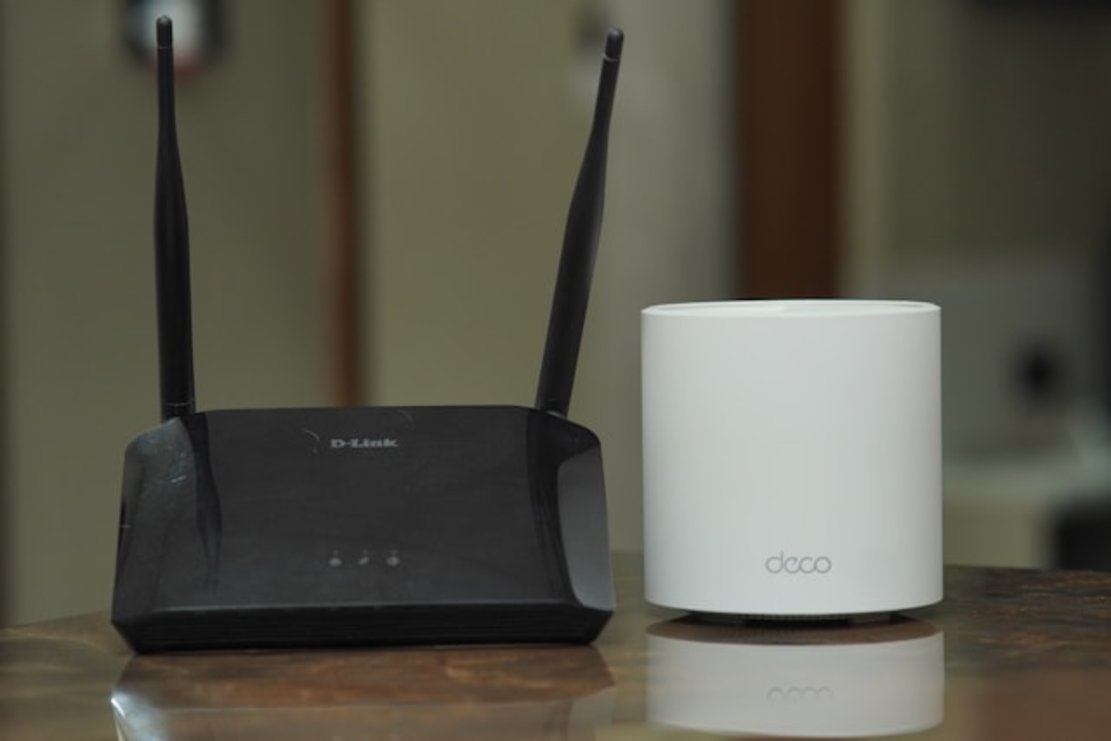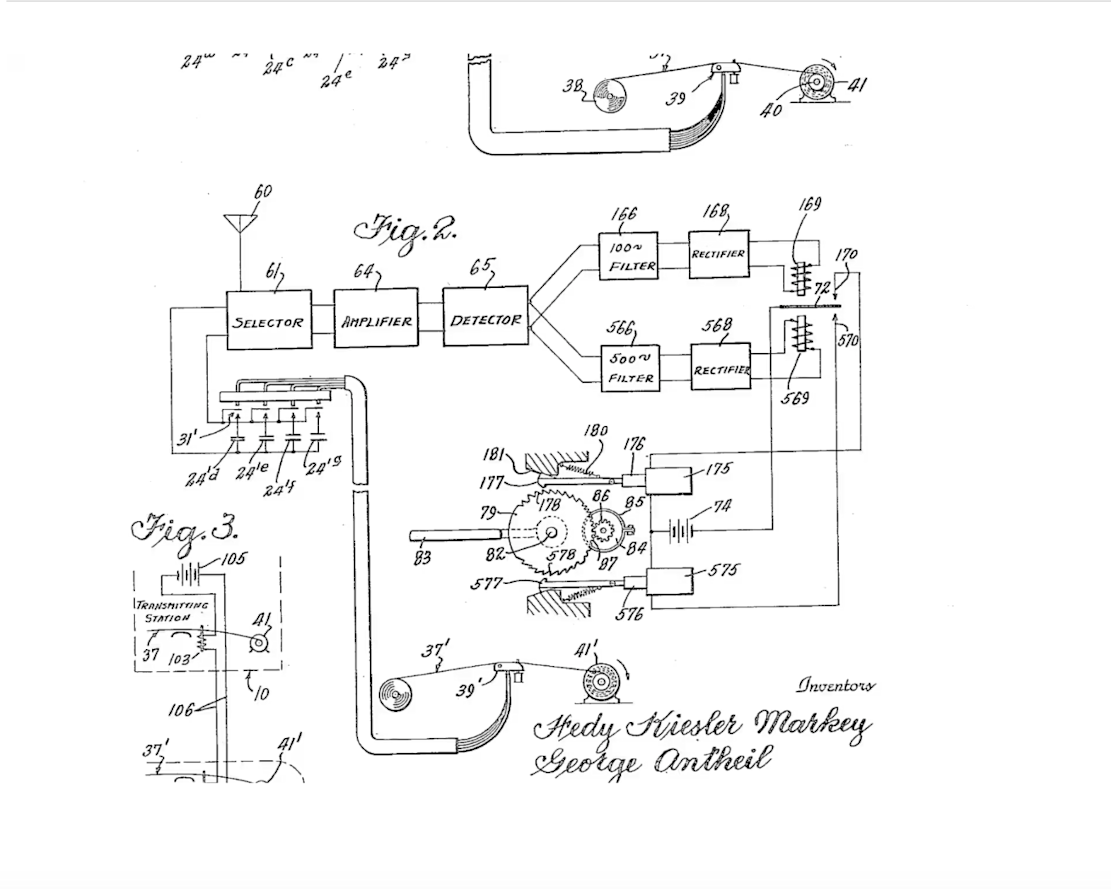Who Created WiFi? The Pioneers of Wireless Technology
WiFi is a great technology because it makes our lives convenient, so much so that we take it for granted. It’s pretty much everywhere you go and has become central to our lives. But have you ever wondered who invented WiFi? How did this technology come about in the first place? What does WiFi stand for?
Well, the story behind the WiFi inventor is complex because it wasn’t the work of a single person. Rather, several individuals brought this amazing technology to life.
Keep reading to learn about all the genius figures that contributed to wireless connectivity that we use daily.

Key Figures in the Development of WiFi
Who made WiFi? To truly answer this question, we need to go back in time. First, let’s look at all the key figures who contributed to this innovation.
Hedy Lamarr and George Antheil
The first contributor in the history of WiFi is Hedy Lamarr, formerly known as Hedy Kiesler. Known as the woman who invented WiFi, she was born in 1914 in Vienna, Austria. She was the child of a bank director and a concert pianist. Her interest in machines, technology, and their inner workings comes from her father.
When he used to go on long walks with her, he would explain how various machines worked. However, she didn’t pursue a degree in engineering or science. Rather, she focused on the movie industry.
Her former husband, Fritz Mandl, an Austrian munitions dealer, forced her to attend his meetings with his customers. His clientele included Nazi and fascist officials, even the ill-famed Mussolini. In these meetings, she learned about torpedoes and the guidance systems these weapons used.
In 1938, she fled to London before moving to New York. Although she became a Hollywood star, her interest in tinkering with objects grew. Once World War II broke out, she focused on finding ways to help with the war.
She met George Antheil, a music composer. Thanks to the meetings she attended with Fritz, she knew anyone could easily jam torpedo guidance systems. She worked with George to find a way to ensure the weapons hit their targets despite enemy interference.
She discovered that the guidance systems can use multiple radio channels to send signals and control the torpedoes. This way, even if the enemy jams one channel, they still need to figure out the other channels.
In other words, she set the foundation for frequency hopping, which was instrumental in the development of WiFi.
Hedy and Antheil worked on this concept and filed a patent in 1941, which the patent office granted in 1942. However, when the duo approached the U.S. Navy with their idea, they didn’t get the defense forces’ approval.

What Is the Role of Dr. John O’Sullivan and the CSIRO?
Dr. John O’Sullivan and the Commonwealth Scientific and Industrial Research Organization of Australia (CSIRO) were working on a different problem. During the 1990s, several communication companies were exploring ways to offer wireless networking.
However, they were unable to make these signals usable inside buildings. Wireless networks, which are radio waves, bounce when they come in contact with surfaces like walls. These signals reach the receiver at different times and speeds, creating unwanted echoes or reverberations of the same signals.
Dr. John O’Sullivan and his team solved this problem. They used a combination of Fast Fourier Transform (FFT) chips and math to separate the echoes and reconstruct the signal.
This is none other than the Wireless Local Area Network (WLAN), which is fundamental to WiFi. CSIRO submitted the patent for WLAN to the U.S. Patent and Trademark Office in 1993. In 1996, they approved the patent for the chip you find in most modern devices.
Vic Hayes
Vic Hayes, the father of WiFi, is another key figure and the last piece of the puzzle. He was the chairman of the Institute of Electrical and Electronics Engineers (IEEE) standards workgroup.
Vic was a senior researcher at Delft University of Technology and established the coveted IEEE 802.11 in 1997. These are the WiFi frequency standards wireless devices use to communicate with one another.
For example, when you need to connect your smartphone to your router, you’ll use 2.4 GHz or 5 GHz frequencies. These devices can be from any brand, and you can still connect seamlessly to your wireless network.
Vic worked for the National Cash Register (NCR), now NCR Voyix Corporation. He was looking for a way to help retailers set up wireless cash registers on multiple floors. He realized a standard would benefit everyone when he started working on this project.
It wasn’t easy to convince everyone to follow a standard. Several manufacturers wanted to use their own standards. Fortunately, he persuaded everyone, including the European authorities, to assign:
- 83.5 MHz radio band for 2.4 GHz frequency
- 475 MHz radio band for 5 GHz frequency
His efforts made WiFi frequencies become mainstream and are now an essential utility.
How These Contributions Connect
As you can see, the story about who invented WiFi is quite complex:
Hedy established the foundation for wireless networks with her patent for frequency hopping while trying to make torpedoes extremely effective. However, she didn’t get recognition for her patent until the 1980s. She is, essentially, the mother of WiFi. Dr. John O’Sullivan and the CSIRO developed the technology to enable WiFi to work indoors. Finally, Vic Hayes developed the wireless network standards, enabling WiFi to work universally on all devices.
Each contribution played an important role in the invention of WiFi.

Wrapping Up
Just like every invention or discovery in science, there wasn’t just one contributor to WiFi. Everyone, i.e., Hedy, CSIRO, and Vic, had important roles to play over several decades. Seeing how every contribution helped develop WiFi, a technology synonymous with the digital era, is fascinating.
Get Started With Free WiFi Marketing
Beambox helps businesses like yours grow with data capture, marketing automation and reputation management.
Sign up for 30 days free


